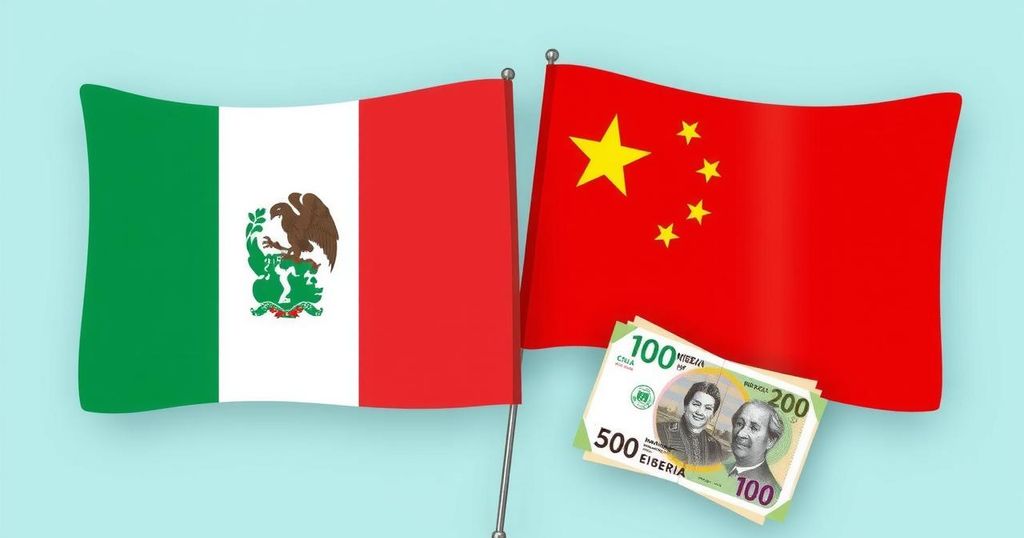China and Nigeria Extend $2 Billion Currency Swap Agreement Amid U.S. Dollar Pressure
China and Nigeria have renewed their $2 billion currency swap deal for three years to enhance financial cooperation and reduce reliance on the U.S. dollar. Amid warnings from President-elect Trump about sanctions on nations withdrawing from dollar usage, this deal seeks to stabilize the naira and facilitate trade. Experts suggest that local production may be crucial for stabilizing the currency rather than dependency on swap agreements.
In a significant development in international finance, China and Nigeria have successfully renewed their $2 billion currency swap agreement for an additional three years. Originally established in 2018, this arrangement is designed to bolster financial collaboration between the two nations while increasing the usage of their currencies—namely the naira and the yuan—in bilateral trade. This extension has been confirmed by the People’s Bank of China and can be further renewed upon its expiration.
The renewal emerges against the backdrop of recent tariff threats made by President-elect Donald Trump, who warned that countries in the BRICS bloc, which includes Brazil, Russia, India, China, and South Africa, may face limitations accessing the U.S. market should they abandon the dollar. In response to such proclamations, officials from South Africa and India have sought to dismiss the narrative suggesting that the BRICS nations are aiming to decouple from the dollar’s dominance.
The swap agreement seeks to increase liquidity in naira for Chinese enterprises while providing yuan liquidity for Nigerian businesses, thus diminishing reliance on U.S. dollars for transactions between the two countries. However, skepticism exists regarding the implications of this deal in the eyes of the Trump administration, which may perceive the renewal as a direct challenge to the prevailing role of the dollar in global markets.
For Nigeria, this agreement not only aims to alleviate pressure from external reserves but also seeks to stabilize the foreign exchange market. The naira has experienced significant depreciation since the swap’s inception, dropping from 305 naira per dollar to nearly 1,000 naira per dollar by late 2022. Following the recent government’s abandonment of a fixed exchange rate system in mid-2023, the naira has continued to plummet, prompting questions about the viability of exchange rate stabilization strategies. Experts, including Taiwo Oyedele from PWC Nigeria, have argued that enhancing local production and substituting imports may offer a more practical solution to stabilizing the Nigerian currency than merely relying on currency swap agreements with industrialized nations such as China.
The ongoing discourse regarding currency swaps highlights the evolving global financial landscape, particularly in light of the pressures exerted by dominant currencies such as the U.S. dollar. The currency swap initiative between Nigeria and China is part of a broader trend among nations seeking to reduce their dependence on the dollar in international trade. With the rising prominence of BRICS as a counterforce to Western economic dominance, countries like Nigeria and China are exploring innovative financial mechanisms to enhance trade partnerships while reducing vulnerability to external financial shocks, particularly those posed by U.S. monetary policies.
In conclusion, the renewal of the $2 billion currency swap deal between China and Nigeria underscores a strategic maneuver to strengthen economic ties while mitigating reliance on the U.S. dollar. This agreement reflects a broader trend among nations reassessing their positions in the global currency landscape amid emerging geopolitical challenges and potential economic sanctions. As the naira navigates significant depreciation pressures, the effectiveness of such agreements in stabilizing local currencies remains a subject of critical evaluation among financial experts.
Original Source: news.bitcoin.com




Post Comment